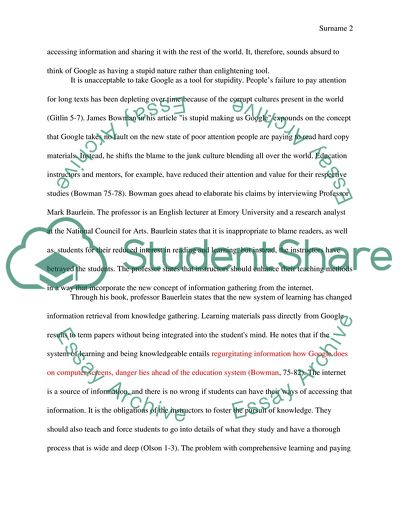Cite this document
(“Is Google Making Us Stupid Essay Example | Topics and Well Written Essays - 1750 words”, n.d.)
Retrieved from https://studentshare.org/english/1668167-is-google-making-us-stupid
Retrieved from https://studentshare.org/english/1668167-is-google-making-us-stupid
(Is Google Making Us Stupid Essay Example | Topics and Well Written Essays - 1750 Words)
https://studentshare.org/english/1668167-is-google-making-us-stupid.
https://studentshare.org/english/1668167-is-google-making-us-stupid.
“Is Google Making Us Stupid Essay Example | Topics and Well Written Essays - 1750 Words”, n.d. https://studentshare.org/english/1668167-is-google-making-us-stupid.


